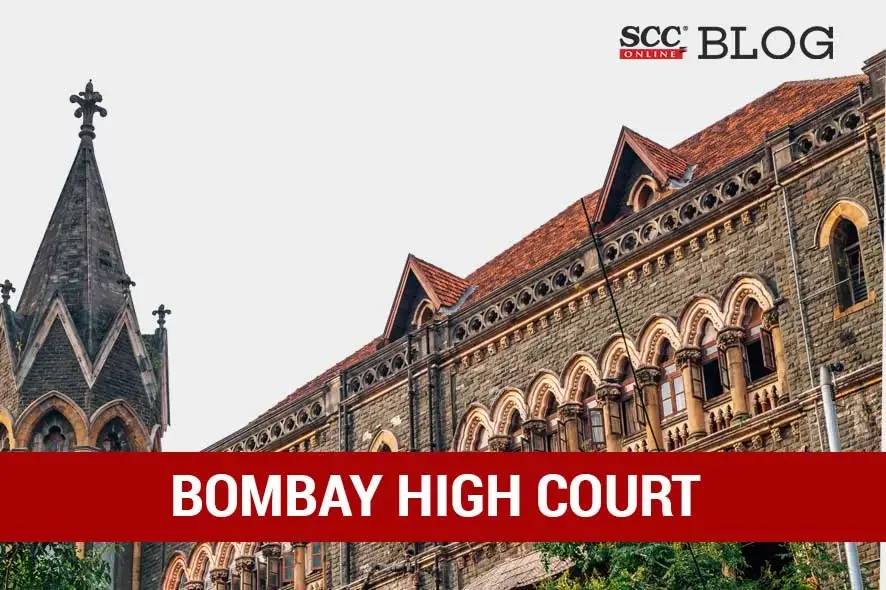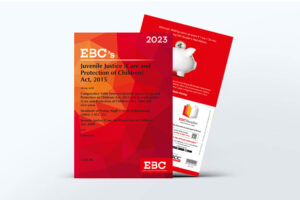Bombay High Court: In an application challenging the judgment and order dated 13-01-2020 passed by the Additional Sessions Judge dismissing appeal against the order passed by the Juvenile Justice Board (‘JJB’) allowing trial of juveniles in conflict with law as adults in a heinous crime, G.A. Sanap, J. quashed and set aside the said order while eyeing at procedural lapses on part of the Juvenile Justice Board during inquiry under Section 15 of Juvenile Justice Act, 2015.
The matter relates to offences under Sections 376(3), 376-DA, 376(2)(j)(n), 354-D, 504, 506 read with Section 34 of the Penal Code, 1860 (‘IPC’), Sections 6, 8, 10, 12, 14, 15 of the Protection of Children from Sexual Offences Act, 2012 (‘POCSO Act’) and Sections 67-A, 67-B and 66-E of the Information Technology Act, 2000 (‘IT Act’) based on a report registered by father of a minor girl allegedly subjected to sexual assault. It was stated that there were 9 accused in this criminal case, out of which, 4 were initially tried before JJB, when the minor’s father made an application for trying the applicant hereunder and another Juvenile in conflict with law (JCL) as adults.
After assessing the mental and physical capacity, and ability to understand the consequences of alleged offence through various professionals, JJB passed final order dated 1-04-2019 directing the said JCL to be tried as an adult with the other adults accused. While one JCL did not challenge the said order, the instant applicant challenged the said order before the Additional Sessions Judge, which was dismissed. The same was brought for revision in the instant matter alleging that JJB did not follow the provisions under Section 8(3)(a) and (e), Section 14(2) and (3) and preliminary assessment in case of heinous crime as per Section 15 of JJ Act and lacked informed participation of the JCLs. It was alleged that the requisite timeline was not followed, and such an application could not be entertained on an application by the informant or victim.
The Court perused the record and proceedings before the Sessions Court and JJB and observed that the JJB concluded that the two JCLs could be tried as adults for being above 16 years of age, and the crime was heinous in nature. The Court also pointed out that the applicant was stated as the kingpin in commission of crime. The Court agreed that the offence in the instant matter was heinous.
The Court said that “as per Section 15 of JJ Act, the JJB was required on its own to conduct a preliminary assessment regarding the JCLs’ mental and physical capacity to commit such offence, ability to understand the consequences of the offence and the circumstances in which the offence was committed.” It further added that such inquiry had to be conducted within prescribed timeline, but the JJB failed in this regard as per Section 14(3) of JJ Act.
The Court scrutinized the definition of ‘heinous offences’ under Section 2(33) and noted that the victim was subjected to sexual assault and persons involved in the instant case were facing serious charges of gang rape. The Court expressed that JJB was duty bound to conduct preliminary inquiry and assessment considering the nature of crime and definition of heinous offence.
The Court concurred with the observations of Additional Sessions Judge against the plea by applicant in the instant matter and viewed that such a submission could not be accepted. The Court observed that “JJ Act does not bar the right of the victim or informant to invoke the provisions in case of failure of the JJB to discharge its duty under the law.”
The Court said that trial of JCLs above 16 years as an adult for a heinous crime is an exception to the general rule of trying a person below 18 years of age as a juvenile. It was expressly viewed by the Court that “the right of the informant to apply before the JJB, even after prescribed timeline, cannot be taken away on the ground of procedural lapse” while concurring with the findings of Additional Sessions Judge and JJB.
The Court further considered the question of “Whether the inquiry and preliminary assessment conducted by JJB to pass final order under Section 18(3) of JJ Act for trying JCLs as adult was sustainable in law?” The Court examined the Roznama maintained by JJB to record the summary of the proceeding undertaken before the Court on a particular date and pointed out that there was no mention of providing a copy of Social Investigation Report (‘SIR’) or report of psychiatrist provided to the JCLs or their advocates. The Court expressed that the roznama does not indicate active participation of JCLs in the inquiry proceeding, which had to be ensured by the JJB.
The Court contemplated that trying a child below 18 years before JJB is a rule and trying a child above 16 years as an adult before Regular Court is an exception. It further added that “The exceptional circumstances must exist and must be proved within the parameters of Section 15 of the J.J. Act to try the child as an adult in case of heinous offences.”
The Court clarified that the inquiry to conclude for trying a child as an adult must be conducted in a transparent and fair manner, and thus, records maintained by the Court in this regard should not leave any scope against the Board’s approach while ensuring effective and meaningful participation of the child. It said that “the child in this process is required to be given fair and unbiased hearing.”
The JJB in the instant matter took assistance of SIR from Probation Officer and report from a psychiatrist for deciding the victim’s father’s application to try the JCLs as an adult in the heinous crime. The Court stated that the final order passed by JJB to try JCLs as an adult based on a half-hearted inquiry prejudiced the JCLs, informant and the victim.
Since the JJB failed to follow the procedure prescribed under JJ Act and Rules, the Court expressed that the impugned order to try the JCLs as an adult required to be quashed and set aside. The Court also pointed towards other lapses like absence of two members of JJB, order not being authored by the Principal Magistrate, while such mandatory procedural compliance is required to be strictly met. The Court cautioned that casual or mechanical approach cannot adopted in such serious matters.
The Court quashed and set aside the order passed by Additional Sessions Judge and remitted the matter back to the JJB for fresh inquiry and preliminary assessment in accordance with Section 15 of JJ Act. The Court also directed the JJB to decide the application submitted by victim’s father within a month and provide a copy of application, SIR and report of the psychiatrist to the JCLs and to ensure actual and effective participation of the JCLs during inquiry.
[Mustafa Khan Jabbar Khan v. State of Maharashtra, 2023 SCC OnLine Bom 1285, decided on 28-06-2023]
Judgment by: Justice G.A. Sanap
Advocates who appeared in this case :
For Applicant: Advocate Parvez W. Mirza;
For Non-Applicants: Additional Public Prosecutor A.R. Chutke, Advocate R.M. Daga.










